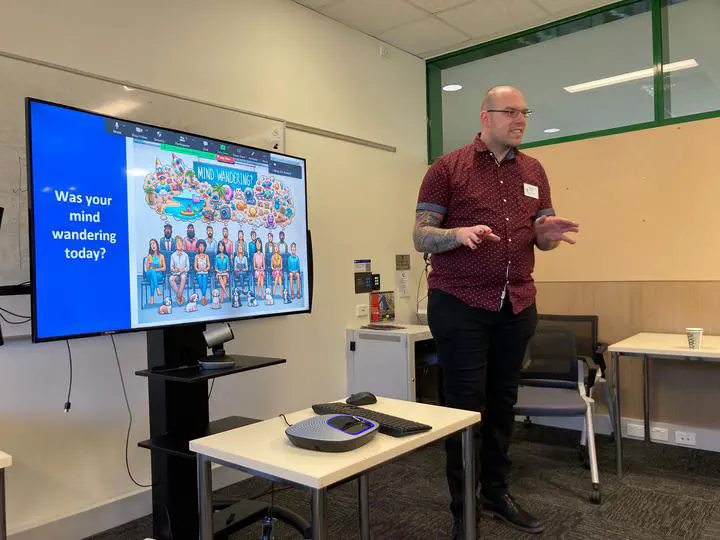Regulating thoughts: A case study of mind wandering and self-regulated learning during learning from videos

Abstract
When students are learning from videos, they need to self-regulate their learning. This self-regulation will depend on and adapt to the task and distractions. A common distraction is that students are mind wandering (Brady et al., 2021); it occurs about 30% of the time, and there is a negative relationship with learning outcomes (Wong et al., 2022). Based on this understanding, the question arises whether students realise that they are mind wandering, and if so, how they react to this realisation. The self-regulated learning model chosen to underpin this research is the COPES model (Winne & Hadwin, 1998) because metacognition is a central element of this model. Metacognition, the process of thinking about thinking, consists of two parts: metacognitive monitoring and control. While learning, students intermittently engage in metacognitive monitoring, followed by metacognitive control to achieve their goals. During metacognitive monitoring, someone may become aware of their mind wandering, which is called meta-awareness (Schooler, 2002). Metacognitive monitoring is crucial to self-regulated learning; this could mean that self-regulated learners are intermittently meta-aware and adjust their learning process once they realise they are mind wandering. The research question is: “How does self-regulated learning influence mind wandering when learning from a video?” To investigate this question, a case study has been designed in which students watch their course videos and report on their mind wandering. These thought reports are combined with the video player interaction data to reveal if the students reacted to their realisations of mind wandering by jumping back in the video to rewatch a section. Students are also asked to answer a questionnaire on self-regulated learning. The hypothesis is that students who self regulate their learning will be aware of their mind wandering. Data collection is ongoing, and this presentation will contain a first view of the data.